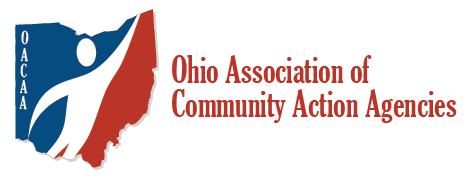The United States of America has always held up work as a core value that defines us as a nation. It is commonly expected that everyone who has the ability to work should do so. Phrases like, “the early bird gets the worm” or “the dignity of a hard day’s work” represent this work ethic that is a necessary part of participation in our society. However, this thinking has become problematic as the gap between the rich and poor continues to grow.
Although this feeling of helplessness and inadequacy is a negative force, many Americans view this situation as a motivational opportunity with the belief that people can always build skills, save money by reducing unnecessary expenses, or invest in education to improve their financial prospects. What happens when a hard day’s work leaves families unable to meet basic needs or save for their children’s future? People become demoralized, depressed, or even worse. Recently, there is a growing body of evidence that earning low wages is not just upsetting, it is impacting health.
Health Policy Institute of Ohio (HPIO) recently released a report that included recommendations on how to address the vital issue between income and health. According to the report, those who earn lower incomes are more likely to experience mental and physical health challenges that go unaddressed. This, in turn, reduces the type of work a low-wage earner could perform. Often, low-wage jobs do not provide health care or paid days off, which only serves to exacerbate existing conditions. It should be noted the relationship between income and health is complex and there is no clear causal relationship, but there is a great deal of correlation between the factors.
In What Works to Increase Self-Sufficient Employment, HPIO offers some policy solutions the state could enact that may help Ohioans improve their economic outcomes.
- Increase capacity for secondary and postsecondary career-technical education programs by:
- Incentivising businesses to partner with and provide financial support to career-technical education programs
- Working with schools and career-technical planning districts to re-evaluate and streamline teacher credentialing requirements
- Providing additional incentive-based resources for under-subscribed career-technical education programs, especially those in career areas that provide self-sufficient employment, with the goal of increasing enrollment in those programs
- Complete an actionable evaluation of the Comprehensive Case Management and Employment Program (CCMEP), including an evaluation of:
- Capacity of provider agencies and case managers
- Engagement of the target population
- Alignment of performance standards and outcomes with the needs and abilities of program participants
- Outcomes related to increasing employment and earnings for youth ages 14-24
- Expand and continually improve alternatives to the GED, including the Adult Diploma Program, the 22+ Adult High School Diploma Program, HiSET and TASC, as well as preparation services for high school equivalency tests provided by Aspire (formerly ABLE) programs.
- Expand the state Earned Income Tax Credit (EITC), lift the existing cap on the credit, make it refundable and/or expand the credit to non-custodial parents.
- Increase funding for publicly funded child care (PFCC), restore eligibility limits to 200 percent FPL and expand access by increasing reimbursement rates paid to child care providers.
- Conduct regular evaluations of, and collect additional data and information on, workforce programs funded at the state and federal levels, including waitlist information and participant characteristics, including race and ethnicity.
For more information, you can read the full report at here.
Josh has over a decade of experience in organizational development and planning. He is a Certified ROMA trainer, Technology of Participation (ToP) certified strategic planner and facilitates board training and poverty simulations. Josh has presented organizational sustainability at local, regional, and national conferences. He is a graduate of the University of Wisconsin Madison’s School of Human Ecology where focused his studies on financial literacy and consumer education. As the Development Director, Josh is responsible for creating new partnerships with community organizations, other social services providers, government entities, corporation and potential funders. He is also responsible for funding research, grant writing, and program design and evaluation.
